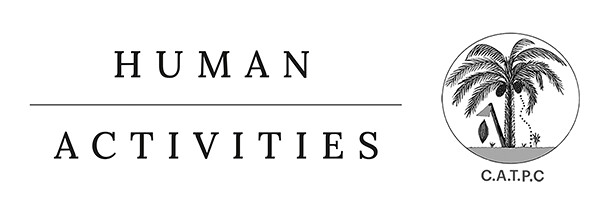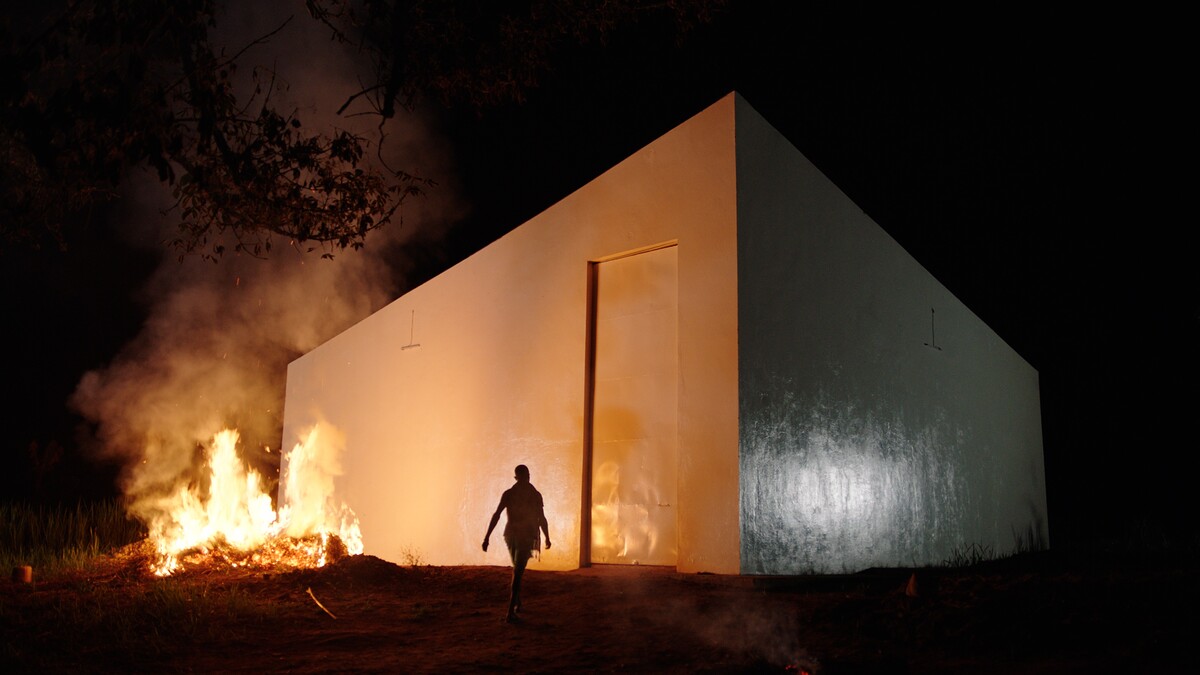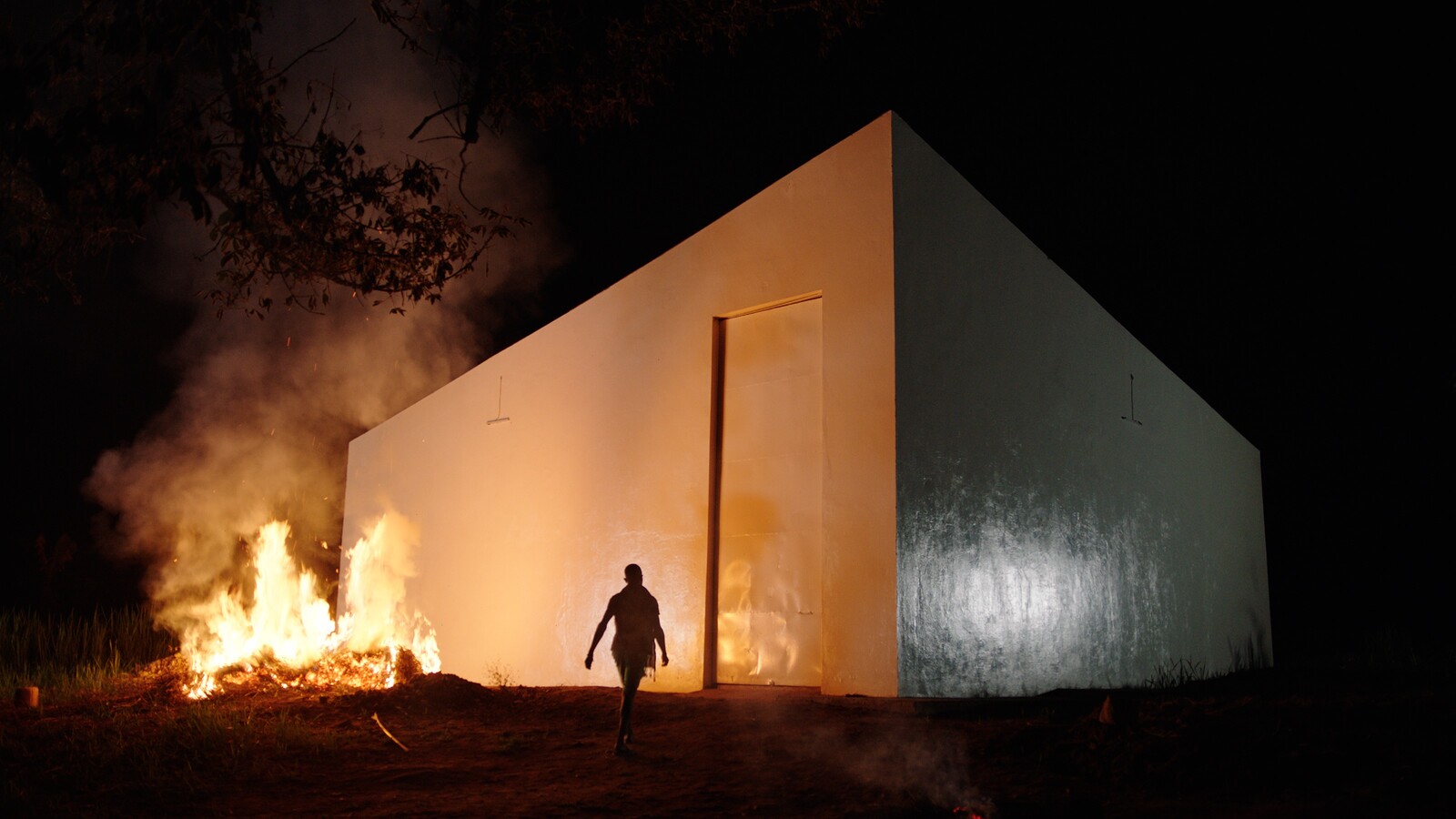White Cube
March 24–May 15, 2021
Cercle d’Art des Travailleurs de Plantation Congolaise (CATPC) and Human Activities are pleased to announce the global museum launch of the new film White Cube. During a six-week event, this new film is projected onto the White Cube in Lusanga, DR Congo, a new building which features in the film. Fourteen institutions join the community in Lusanga with a series of screenings and webinars.
Participating institutions
African Artists’ Foundation (Lagos), KW Institute for Contemporary Art (Berlin), ICA (London), Mori Art Museum (Tokyo), MPavilion (Melbourne), Museum MACAN (Jakarta), National Museum (Kinshasa), Picha (Lubumbashi), SCCA (Tamale), Sharjah Art Foundation, The Africa Institute (Sharjah), V-A-C (Moscow), Van Abbemuseum (Eindhoven), Wiels (Brussels).
Participating artists, curators, and activists include: Kirill Adibekov, Wendy Bashi, Henry Bundjoko, Sandrine Colard-De Bock, Clémentine Deliss, Charles Esche, Hikaru Fujii, David Gianotten, Arsene Ijambo, Matthieu Kasiama, Jean Katambayi, Mami Kataoka, Mbuku Kimpala, Adjo Kisser, Selom Kudjie, Ibrahim Mahama, Suhail Malik, Franklin Mubwabu Mbobe, Jean Francois Mombia Atuku, Aymar Nyenyezi Bisoka, René Ngongo, Azu Nwagbogu, Kwasi Ohene-Ayeh, Helen Runting, kari kacha seidou, Oluwatoyin Sogbesan, Ced’art Tamasala, Surafel Wondimu, and Tirdad Zolghadr.
About White Cube
In White Cube, a cooperative of Congolese plantation workers set a new precedent. They successfully co-opt the concept of the “white cube” to get back their land from international plantation companies and secure it for future generations.
In this new film, the iconic modernist White Cube is recontextualized within the same setting that has historically underwritten its development. In economic terms, profits extracted from plantations in Congo and elsewhere have funded not just the building of European and American infrastructure and industries, but also that of museums. On an ideological level, the violence and brutality unfolding on one side—the plantation zones—has informed and haunted the civility, taste and aesthetics championed at the other: the White Cubes.
By colliding these two opposite poles of global value chains with each other, the film puts into perspective both the monoculture of the plantation system, which continues to exhaust people and the environment, and the sterility of the White Cube: a free haven for critique, love and singularity, that—more often than not—reinforces class divides. Now that museums increasingly embrace inclusivity and diversity, the question remains whether these developments can also benefit plantation workers and their communities.
“These plantations finance European museums. This means that inequality survives through these museums.”
—Elvis Mutiri Wa Bashara, Minister of Culture and Tourism of the D.R. Congo, in White Cube
To be clear, the White Cube has been deployed for progressive political ends throughout modern and recent art history. Its collective ownership by a cooperative of plantation workers who may not have had access to its benefits, may redefine the ways in which White Cubes can function in the future.
From the Unilever Series in Tate Modern to depleted plantations in Congo, the film puts forward a proof of concept: museums can indeed decolonize and be inclusive, provided that the privileges associated with the White Cube return to plantation workers whose labor financed—and, in some cases, continues to finance—the foundations of these institutions.
After a miserably failed solo attempt by artist and filmmaker Renzo Martens to resolve inequality through critical self-reflection, White Cube follows the Cercle d’Art des Travailleurs de Plantation Congolaise (CATPC), a plantation workers’ cooperative based on a former Unilever plantation in Lusanga, Democratic Republic of the Congo. The film documents CATPC’s success in ending the destructive system of monoculture on their lands.
“Land or art. If I would have to choose, I would choose both. But if I really have to choose only one, I would choose the land. Where can I put my chair and start making art, if I do not own the land?”
—Matthieu Kasiama, artist, member of CATPC, in White Cube
The film documents the opening of CATPC’s first solo exhibition in New York City, highlighting their sculptures. The show was hailed by the New York Times as the “best art of the year.”
“This was the most challenging show of the year, and proudly ‘problematic,’ but that was the point: You need to be fearless, and run right into the swamp of possible misunderstanding, to have any hope of making a difference.”
With the sales of their sculptures, CATPC acquired 100 hectares of exhausted plantation land, on which its members built an OMA-designed White Cube. The film documents how the museum attracts the capital and the visibility needed to develop a sustainable alternative to monoculture: the inclusive, ecological, worker-owned post-plantation. Plugged into international networks, the White Cube transforms the former palm oil plantation of Lusanga into a legitimization machine, investigating and relaying the strategies of resistance alongside visions for the future of plantation workers.
The film will be screened and debated on the sites of the participating institutions, behind a five-dollar paywall. All proceeds go to CATPC which uses it to buy back more land.
A trailer of the film is available here.
The full list of screenings and webinars is available here.
About Cercle d’Art des Travailleurs de Plantation Congolaise and Human Activities
CATPC aims to improve the livelihoods of its members through getting back their own land. Human Activities’ mission is to prove that artistic critique on economic inequality can redress inequality not only symbolically, but also materially.
Join the Human Activities newsletter.


